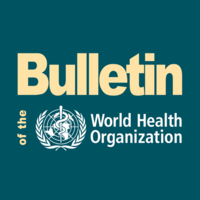National policies on the management of latent tuberculosis infection: review of 98 countries

Citation: Jagger A, Reiter-Karam S, Hamada Y, Getahun H. National policies on the management of latent tuberculosis infection: review of 98 countries. Bull World Health Organ. 2018;96(3):173-184F. doi:10.2471/BLT.17.199414
Abstract: Objective: To review policies on management of latent tuberculosis infection in countries with low and high burdens of tuberculosis.
Methods: We divided countries reporting data to the World Health Organization (WHO) Global Tuberculosis Programme into low and high tuberculosis burden, based on WHO criteria. We identified national policy documents on management of latent tuberculosis through online searches, government websites, WHO country offices and personal communication with programme managers. We made a descriptive analysis with a focus on policy gaps and deviations from WHO policy recommendations.
Findings We obtained documents from 68 of 113 low-burden countries and 30 of 35 countries with the highest burdens of tuberculosis or human immunodeficiency virus (HIV)-associated tuberculosis. Screening and treatment of latent tuberculosis infection in people living with HIV was recommended in guidelines of 29 (96.7%) high-burden and 54 (79.7%) low-burden countries. Screening for children aged <5 years with household tuberculosis contact was the policy of 25 (83.3%) high- and 28 (41.2%) low-burden countries. In most high-burden countries the recommendation was symptom screening alone before treatment, whereas in all low-burden countries it was testing before treatment. Some low-burden countries’ policies did not comply with WHO recommendations: nine (13.2%) recommended tuberculosis preventive treatment for travellers to high-burden countries and 10 (14.7%) for patients undergoing abdominal surgery.
Conclusion Lack of solid evidence on certain aspects of management of latent tuberculosis infection results in national policies which vary considerably. This highlights a need to advance research and develop clear, implementable and evidence-based WHO policies.
Methods: We divided countries reporting data to the World Health Organization (WHO) Global Tuberculosis Programme into low and high tuberculosis burden, based on WHO criteria. We identified national policy documents on management of latent tuberculosis through online searches, government websites, WHO country offices and personal communication with programme managers. We made a descriptive analysis with a focus on policy gaps and deviations from WHO policy recommendations.
Findings We obtained documents from 68 of 113 low-burden countries and 30 of 35 countries with the highest burdens of tuberculosis or human immunodeficiency virus (HIV)-associated tuberculosis. Screening and treatment of latent tuberculosis infection in people living with HIV was recommended in guidelines of 29 (96.7%) high-burden and 54 (79.7%) low-burden countries. Screening for children aged <5 years with household tuberculosis contact was the policy of 25 (83.3%) high- and 28 (41.2%) low-burden countries. In most high-burden countries the recommendation was symptom screening alone before treatment, whereas in all low-burden countries it was testing before treatment. Some low-burden countries’ policies did not comply with WHO recommendations: nine (13.2%) recommended tuberculosis preventive treatment for travellers to high-burden countries and 10 (14.7%) for patients undergoing abdominal surgery.
Conclusion Lack of solid evidence on certain aspects of management of latent tuberculosis infection results in national policies which vary considerably. This highlights a need to advance research and develop clear, implementable and evidence-based WHO policies.
Author(s): Bulletin of the World Health Organization
Year: 2018
Language: English
Resource Type: Journal Articles
Source: Other
Filed under: Governance, HIV, Journal Article, Latent TB, Management, People living with HIV, policy, Research, TB and HIV, TB burden
